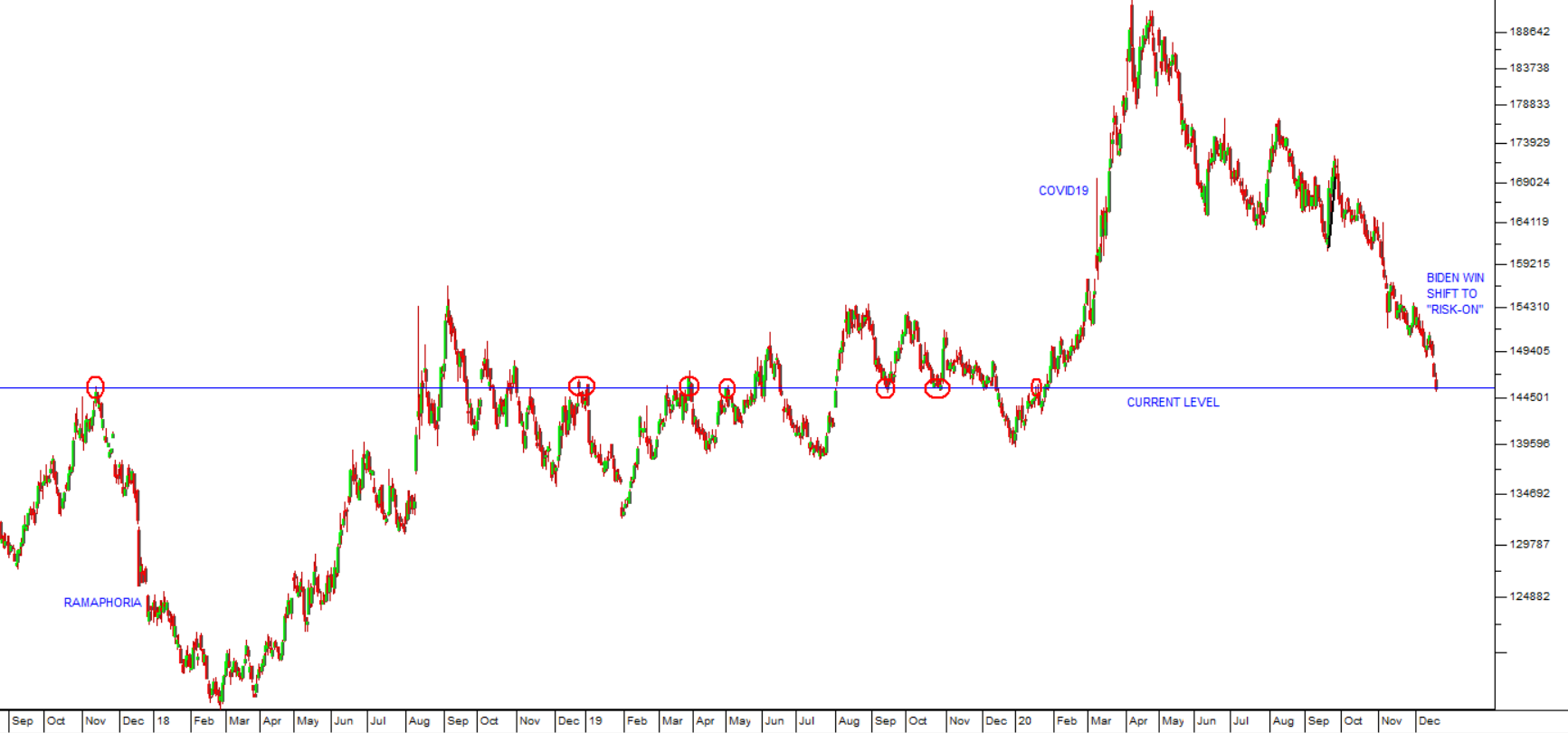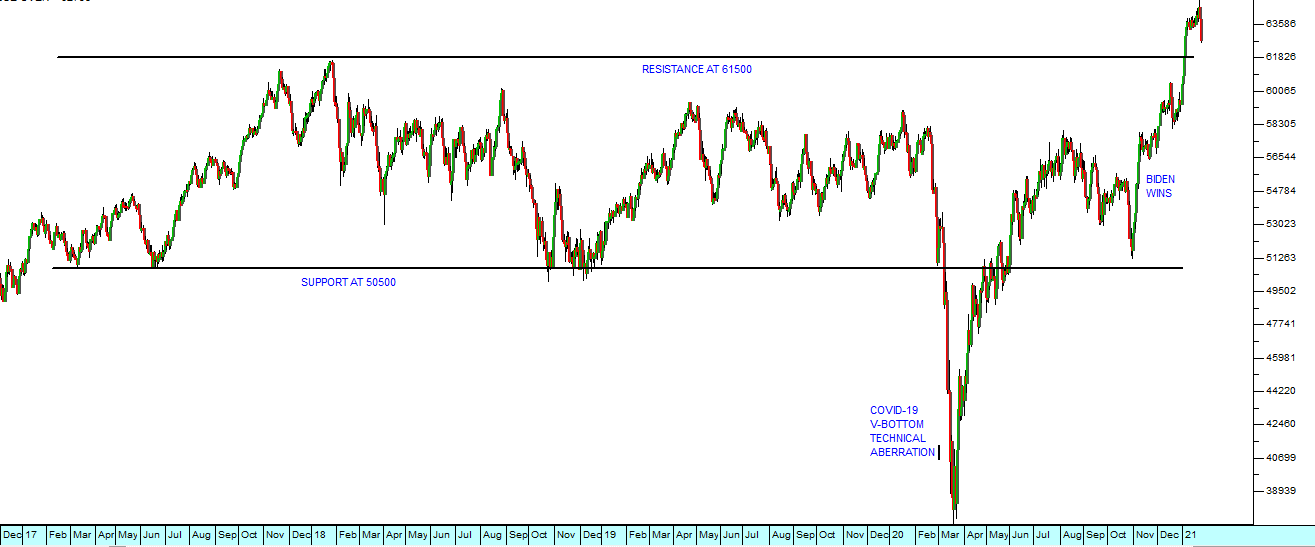The Rand Bull
For some years now we have believed that the rand was underpriced in relation to the currencies of first world countries, especially the US dollar. We have also said that the rand, as one of the most heavily traded emerging market currencies, is a barometer of the international investment community’s perception of risk in the world economy. When investors are generally “risk-off” they get out of the rand and into hard currencies and vice versa.
The imminent advent of Joe Biden as President of the US appears to have ushered in a powerful period of “risk-on” which means that investors world-wide are getting out of US Treasury Bills and looking for the best real returns they can find. Our government bonds offer some of those best real returns in the world with inflation at around 3% and a nominal yield of above 9%. So, there has been a flood of cash coming into the country which has meant that the rand has appreciated steadily.
In fact, the rand has now reversed all the negativity which accompanied the initial COVID-19 lockdowns of March/April and is trading at levels last seen in January this year before the virus became a factor. We expect that this positive trend will continue. Consider the chart:

What this chart shows is that the current level of the rand against the US dollar (R14,54 close on Friday) is “technically significant” in that it has been a turning point on at least 7 occasions in the recent past. It has been both a resistance and a support level. The chart also shows the initial “ramaphoria” which gripped markets in late 2017 when President Ramaphosa took leadership of the ANC, the impact of COVID-19 in early 2020 and then the steady strengthening of the rand topped off by a sharp shift towards “risk-on” following Joe Biden’s win in the US elections.
Our expectation is that the rand will continue to strengthen on the back of money flowing into South Africa in search of high real returns. This will have the effect of boosting the economy and helping it to recover from the economic impact of the virus. It will also tend to keep inflation levels low as the price of petrol benefits directly from a stronger rand.
It is significant that the JSE Overall index is poised to break to new record highs. Consider the chart:

The V-bottom that we warned of on 13th March 2020 is clearly visible now and can be seen for what it was - a great buying opportunity. We expect foreign funds to continue to come into the country and the bull trend to continue for some time.
To all our Readers:
This will be the last article that we will publish this year. The next article will be published on Monday 4th January 2021.
We take this opportunity to wish you and your family all the best for the festive season and the New Year.
PDSnet
← Back to Articles